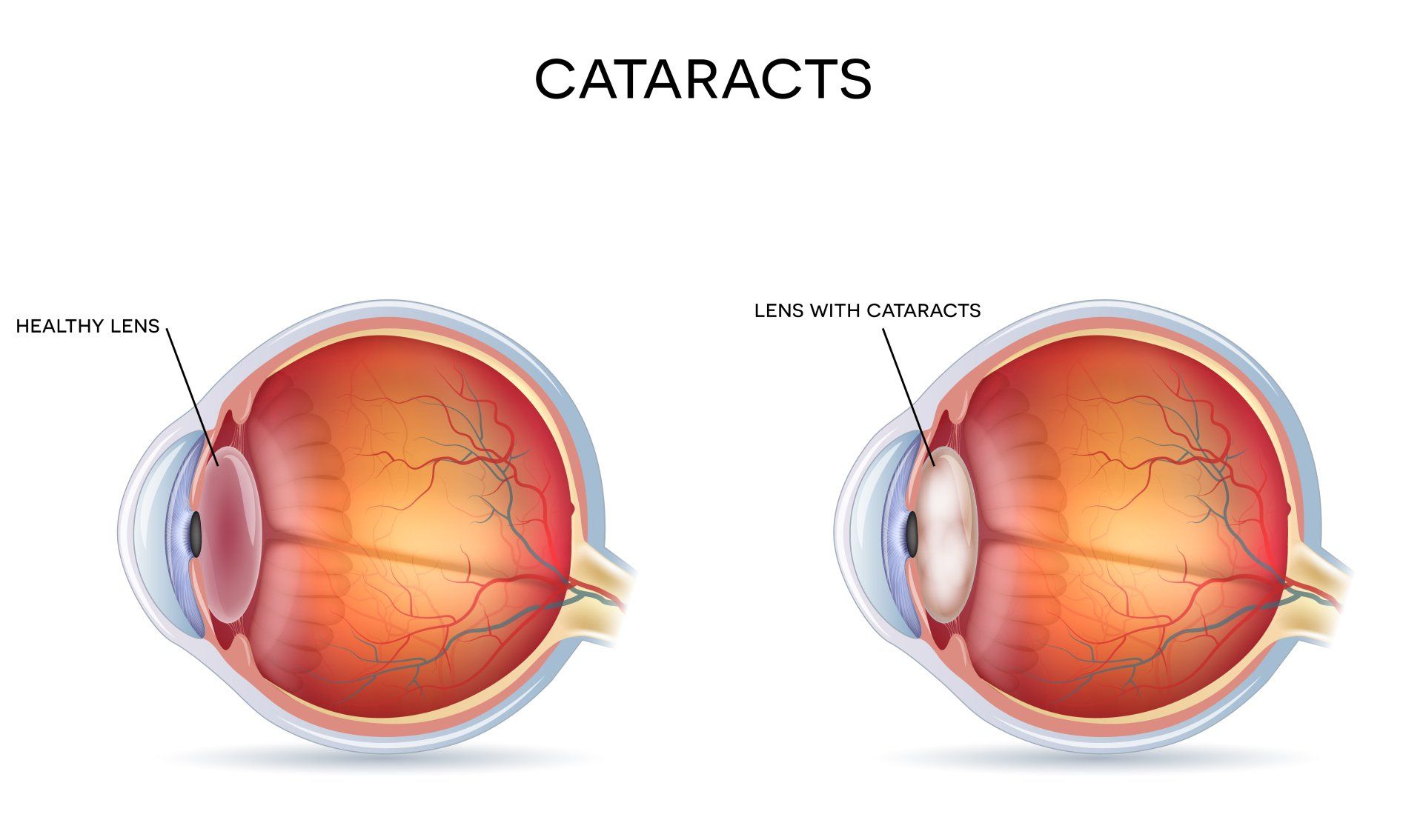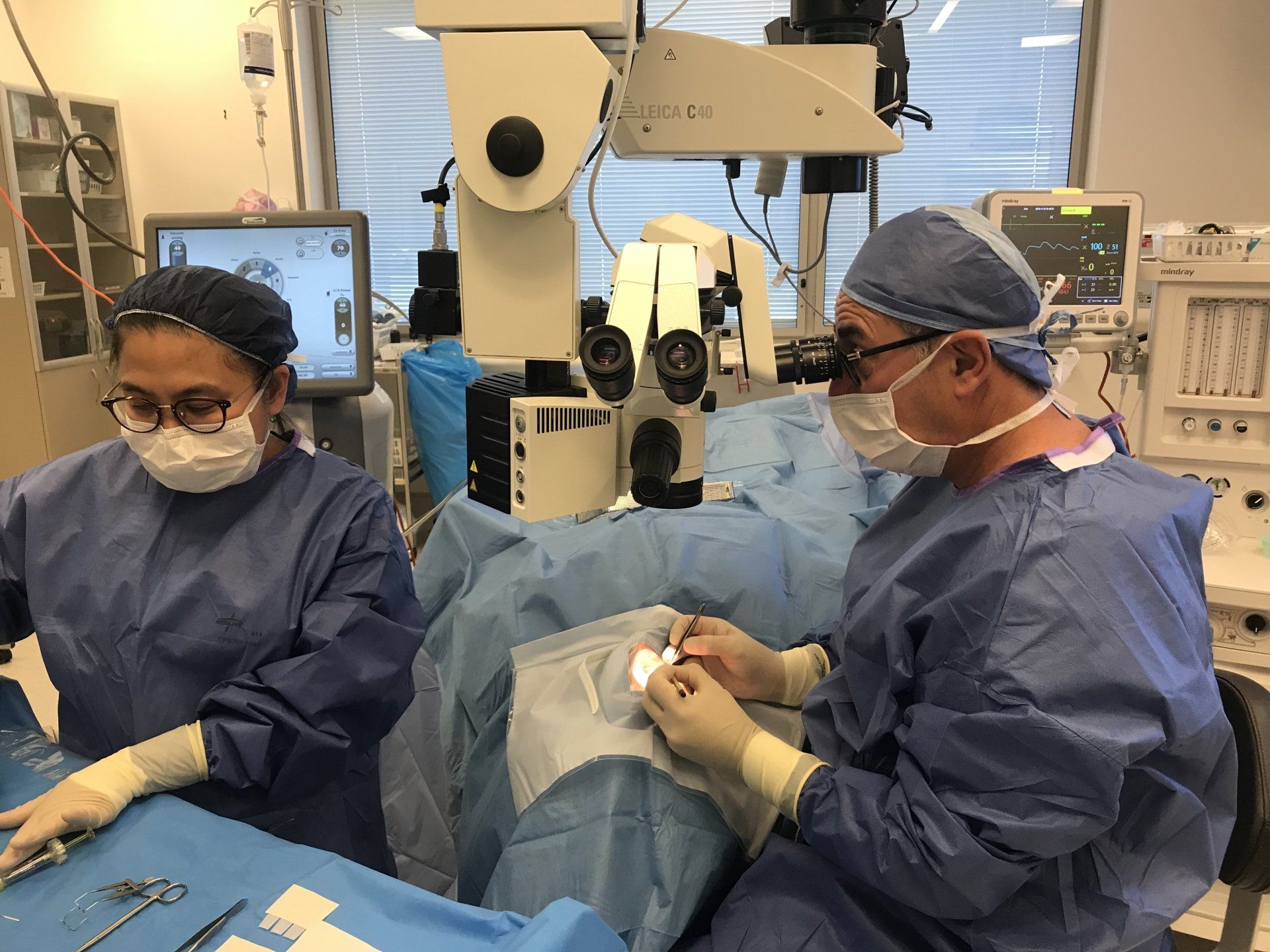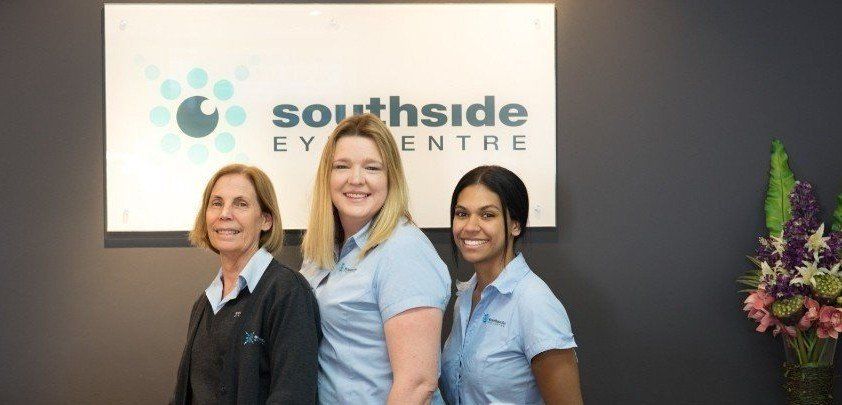

Cataract Surgery Brisbane
What is a Cataract?
How is a Cataract Treated?
The only proven treatment for cataract is surgery. Through micro incisions, an opening is made in the lens bag. The opaque lens is then broken into small fragments with ultrasound and removed from the eye. Next, a transparent artificial lens (intra-ocular lens: IOL) is inserted into the lens bag. The focusing power of each lens implant is specific to each eye and highly precise measurements are taken of the eye before surgery to determine the exact lens strength for your eye.
What Will I Experience During Cataract Surgery?
Local anaesthetic is applied to the eye prior to the eye surgery so no pain is felt. You will feel movement and sometimes some pressure. You are given medication to relax you (sedation) so you are in a “twilight,” but you will be awake. You will be unable to see any of the operating instruments that are used during the
cataract surgery.


Will I Need Glasses After Cataract Eye Surgery?
The degree to which glasses will be required after cataract surgery depends on the type of artificial lens implant used.
There are 4 options:
Option 1: Monofocal artificial lens implant in both eyes.
The traditional approach has been to insert lens implants which provide excellent distance vision in both eyes. It is a very good option for those who wish to have excellent distance vision without glasses but who are happy to wear glasses for near (eg reading) and intermediate distance (eg using computers, reading the dashboard of a car).
Option 2: Multifocal artificial lens implant in both eyes.
Multifocal intraocular lenses provide excellent vision for objects at all distances. They provide excellent distance vision (driving, watching TV), intermediate vision (eg working with computers) and near vision (eg reading tablets, phones, books). They are the lens type which are most likely to result in spectacle independence. In some people multifocal lenses can result in haloes around lights which are most commonly noticed when driving at night. Usually these are very mild. However, in around 1 in 200 cases, haloes can be very troubling to the point where these lenses need to be removed.
Option 3: Extended Depth of Focus (EDOF) lens implants.
EDOF lenses provide not only excellent distance vision without glasses (eg driving, watching TV), they also provide excellent intermediate distance vision (eg working with computers). EDOF lenses also provide some degree of near vision (eg reading tablets, phones, books), although glasses are still required to read small print, particularly under low light conditions. Although the near vision provided by EDOF lenses is not quite as good as that provided by multifocal lenses, it is very rare for haloes to be noticed by patients.
Option 4: 'Blended Vision' or 'Monovision'.
In blended vision, artificial lens implants are inserted which result in one eye being focused for distance and the other eye being focused for near. Blended vision significantly reduces the need to wear glasses after cataract surgery. It usually allows people to be glasses-free for most daily activities. Patients may still require glasses for reading very fine print and/or for driving at night. Because one eye is focused for distance and the other for near, it can take the brain a few months to fully adapt to blended vision.
Can I have Cataract Surgery in Brisbane if I don't have Private health insurance?
Southside Eye Centre offers “intermediate” cataract surgery to patients in Brisbane who do not have private health insurance and would like to have their cataract surgery performed sooner than is possible through public hospital waiting lists.
The wait time for this is 2-3 months, much less than the standard waiting time for surgery through the public system. As an “intermediate” patient you have your surgery performed by a fully qualified Eye Surgeon, not a training Doctor.
How much does Cataract Surgery cost in Brisbane if I don't have Private health insurance?
The total out-of-pocket cost for “intermediate” cataract surgery through the Westside Private Hospital with Dr McLintock is from $2000. This includes the Surgeon fee, Anaesthetist fee, hospital fee and a standard monofocal lens implant. Costs can be higher for patients wishing to be less dependent on spectacles following their surgery because this usually requires more expensive lens implants.
Book Cataract Surgery Now
Southside Eye Centre provide consultations for Cataract Surgery in Upper Mount Gravatt. Contact us today here.
About Southside Eye Centre
Our Doctors are all highly trained Eye Surgeons and use the most up to date technology to ensure excellent outcomes for our patients. Our Eye Doctors are committed to ensuring our patients receive care of the highest standard.



Location
CLINIC HOURS
- Mon - Fri
- -
- Sat - Sun
- Closed
